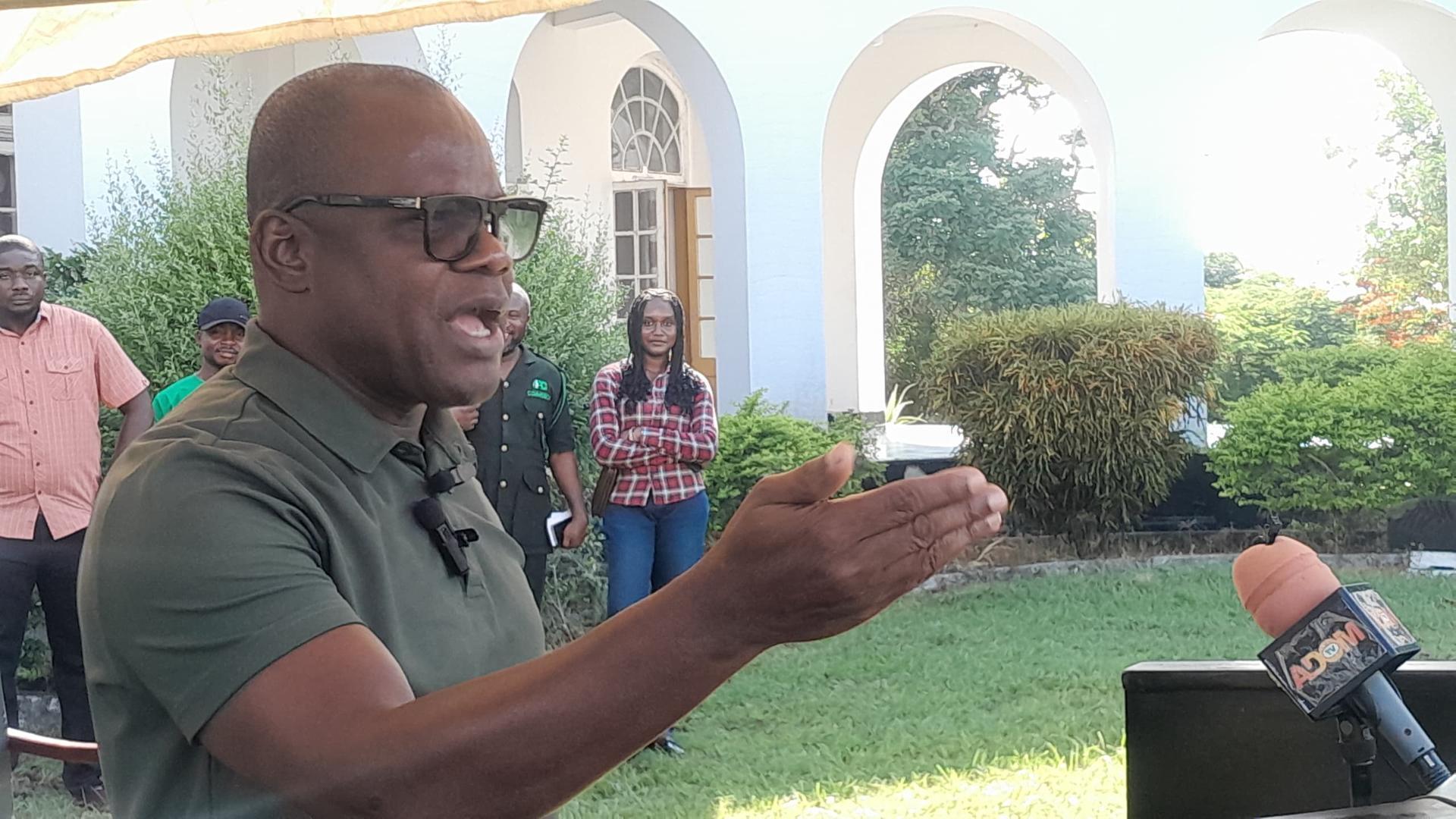Africa-Press – Ghana. Mr Ekow Panyin Okyere Eduamoah, the Central Regional Minister, has suggested that the planting of trees should be considered as one of the conditions for offering employment opportunities, and academic degrees and preached in sermons.
That, he said, would compel citizens to grow more trees to help Ghana restore its degraded environment.
The Minister also implored Members of Parliament, Ministers of State, Chief Executive Officers and all other people in strategic positions to use tree planting as a condition for offering support to people who went to them.
He made the remarks during a commemorative tree planting exercise at the Central Regional Coordinating Council where more than 20 trees were planted to officially commence government’s “Tree for Life’ reforestation initiative in the region.
The initiative aims to restore degraded forest lands, particularly in areas affected by illegal mining and deforestation, while fighting climate change and enhancing biodiversity.
It is also intended to raise awareness on the importance of trees and environmental conservation, create jobs, and inculcate tree growing habits in children and the youth.
Under the initiative, Ghana seeks to plant more the seven million trees nationwide this year alone.
Having acquired some 200 acres of land to plant trees and food, the Regional Minister called on all religious bodies, corporate entities, public institutions and individuals to participate and take personal interest in growing trees.
Acknowledging the power of the pulpit, he urged men of God to tie their prophecies and sermons to tree planting to encourage members who had never planted trees to do so.
“If a prophet told us that we will die tomorrow because we have not planted a tree, we will quickly do so and nurture and protect it with our lives because we don’t want to die,” he said.
Mr Eduamoah also encouraged universities to adopt a system to ensure that each student planted some trees before they completed school, without which they would not be graduated.
“By the time you present your final thesis, you should have planted 10 trees in a community and show where you planted them. If you multiply that by the number of students that come out of the university every year, are we going to be here again?” he quizzed.
For government institutions, he said job seekers must show proof that they had planted some trees in their lives before they were offered employment.
He again suggested to the courts to use tree planting to mitigate sentences, stressing that tree planting must be internalised.
“For instance, if a person is handed a six-month jail term and their family is able to plant some 500 trees, the sentence could be reduced to four or three,” he explained.
Mr Eduamoah bemoaned the destructive nature of development and agricultural practices and called for a change in attitude.
He said: “If we are to have an impact and be successful in what we are trying to do today, we need to change our behaviour. Because our practices have been that you are going to plant one tree but at the end of the year you might have destroyed 200 trees.
“If we stop growing trees and begin to protect what we have already, we will be doing very well than attempting to spend huge monies to grow trees while our destructive activities are so many. We need to stop that.”
The Minister insisted on a system to account for all trees that had been planted to ensure they were not left to die.
“We have destroyed our environment, and we need to be intentional about the way we restore it,” he stated, adding that they would go around in five months’ time to monitor the trees.
Mr Emmanuel Owusu-Nkwantabisa, Regional Director, Forestry Commission, announced that the region was producing 500,000 seedlings of various species for distribution.
The region is aiming to establish 700 hectares of forest plantation, distribute 100,000 seedlings for amenity planting, 300,000 seedlings for trees on farm and undertake enrichment planting in 150 hectares of forest reserves.
The seedlings, Mr Owusu-Nkwantabisa said, were being distributed from all Forestry Commission offices and selected locations across the country and in the region and urged all citizens and residents to partake in the exercise.
“I implore all of us to come together to grow trees to restore our forests. Let us come together to plant trees to restore our degraded lands and let us come together to grow trees to restore our water bodies/
“Let us make the ‘Tree for Life’ initiative succeed and together we will win,” he said.
Officers of the Commission led by the Regional Director, later joined the University of Cape Coast and the Catholic Church in Cape Coast to plant more commemorative trees.
For More News And Analysis About Ghana Follow Africa-Press







